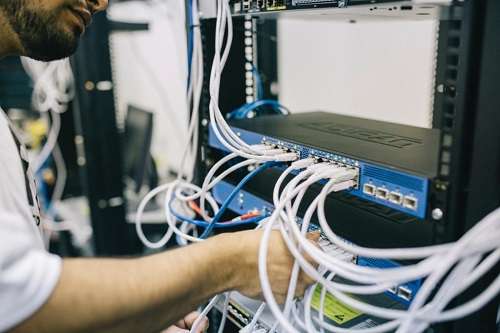The time before the internet was around is getting further and further behind us. Advances in technology have lead to an advanced the Internet of Things time and time again. With more boosts to technology, how will we handle this everchanging market?
Depending on your age, you might remember a childhood devoid of video games and the internet. However, you might also be someone who competes with friends to reach 10,000 steps a day. Even if your life started without it, it’s getting harder to imagine living life without the internet. The web, in particular, the Internet of Things has enabled us to connect, monitor our lives, and run our business. However, due to IoTs pervasiveness, it’s become a cybersecurity risk.
In particular, businesses and governments have a high risk when using IoT. There’s a high chance that the organization might use more than one system as well. They could have their heating and security attached to the internet on top of regular business efforts. While this connection can maximize effectiveness, it also increases the risk of intrusion.
Recent Attacks in IoT
In 2015, there was an electrical attack in Western Ukraine. By the end of the attack, around 250k people were left without power for more than five hours. The next year, the Miria malware incident left a large portion of East US without access to the internet. These recent attacks how just how many systems are connected to the IoT and how many flaws are still to be worked out.
It’s predicted that by 2020, over 20 billion devices will be connected to the Internet of Things. It’s a fast-growing market with many questions. More businesses are asking about software security, encryption, and access controls to ensure they will be safe. On the other hand, more IoT companies are ensuring their client’s safety by also including lessons on changing passwords and basic security measures.
A Positive Future
Companies like Bursys are working to answer these questions and address these issues by implementing more standards and best practices than ever before. Businesses are ensuring the security of data from collection to processing and sharing. Following standards set, such as ISO/IEC 29001, can help businesses like Bursys to have a clear approach to security in which the market can know the appropriate safeguards were followed in product design.
Looking further out, technology will keep integrating itself into each part of our daily lives. As this happens, we will have an increased need for IoT systems as well as the security around them. The nature of IoT’s growth will require collaborative and international teamwork. Over time all IoT businesses will determine how to continue to develop and secure this vital technology.
Bursys is a global software development and information technology services company. We specialize in assisting clients through different stages of digitalization from strategy to on-going support. Our processes including ensuring that your business will be secure no matter what method of digitalization you go through. If you have questions about the future of IoT, contact us today!


